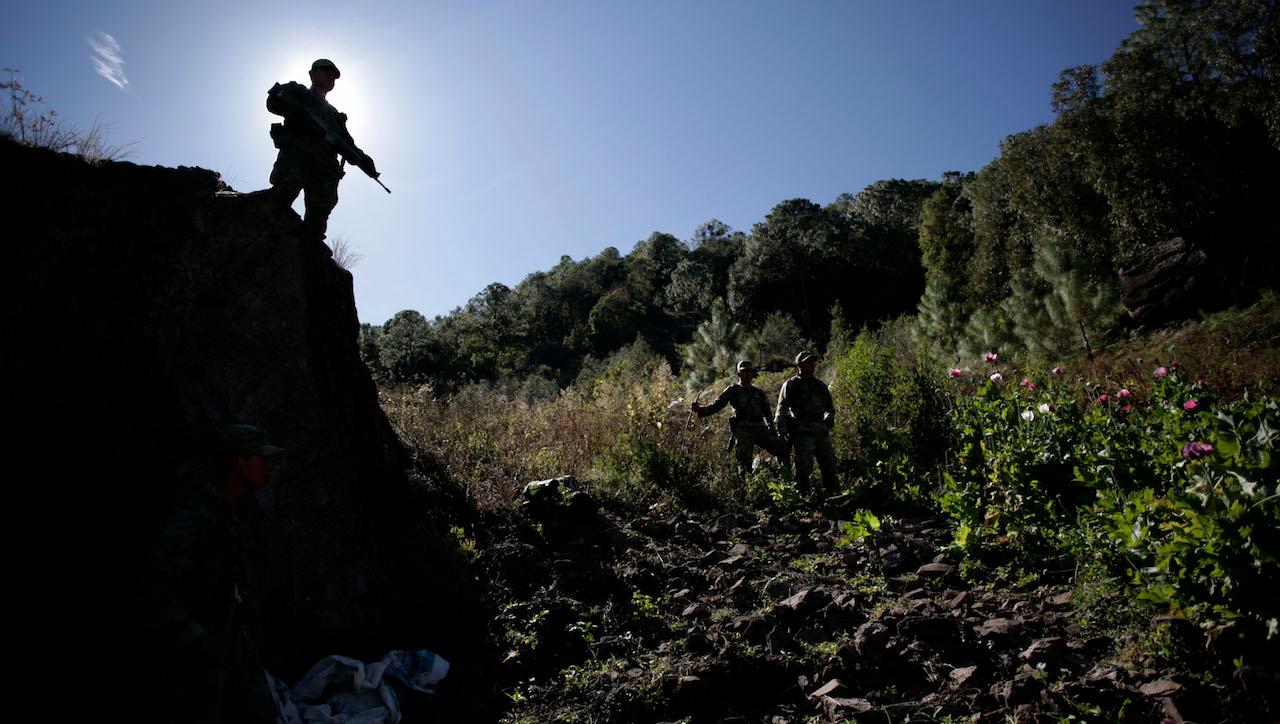Why heroin is Mexican drug cartels’ new product of choice
A soldier surveys a poppy field used for heroin production in Sinaloa, Mexico. Heroin production has increased dramatically in Mexico recently.
In Mexico, a profound change is occurring in the drug trade.
Where cartels once focused on smuggling marijuana and cocaine to the United States, they are now turning more and more to a new product: heroin.
The nonprofit Hudson Institute estimated the amount of pure heroin produced in Mexico in 2015 rose 67 percent over the 2014 numbers, and 170 percent over the estimates for 2013. Officials from both Mexico and the United States estimated at least a 50 percent jump in production in 2014, according to The New York Times.
The BBC’s Ian Pannell has found that Mexican supply networks for heroin are threatening to replace traditional smuggling routes from Central Asia and Afghanistan.
Pannell spent time with farmers, traffickers and users, and discovered that this new strategy reflects changing business conditions for illegal narcotics.
One factor is the declining profit margins for marijuana smuggling. As more of the US decriminalizes the medical and recreational use of pot, local US production has increased exponentially. Illegally smuggled product from Mexico is unable to compete on either quality or price with this legally grown cannabis.
At the same time, the US prescription opioid epidemic has driven a new spike in demand for heroin. One Mexican farmer described the change to Pannell as a simple one. “He is no longer growing the green flower [marijuana], he is growing the red flower [poppies], because that is where the money is."
Pannell says that the change in tactics by the cartels should not be seen as a sign of defeat. “I’ve yet to see a government put in place laws that are effective in stopping a drug trade that produces such great profits. You won’t meet anyone who thinks that the war on drugs is anything like a success.”
